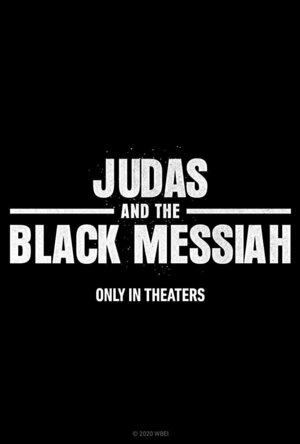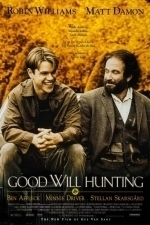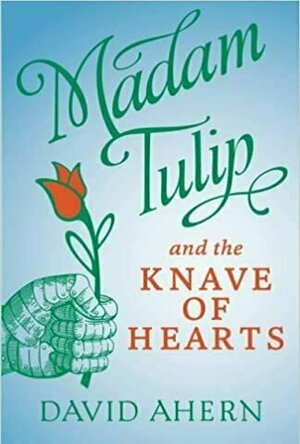Search
Search results
Phillip McSween (751 KP) rated Pokémon: Detective Pikachu (2019) in Movies
Jul 27, 2019
Don't Try and Make Sense of it and You'll be Just Fine
With the aid of Detective Pikachu (Ryan Reynolds), Tim Goodman (Justice Smith) is on a mission to find out what happened to his missing father.
Acting: 10
Beginning: 6
Characters: 10
You can’t have a movie centered around Pokemon and not have a bevy of characters to behold. Detective Pikachu does not disappoint pushing the envelope of creativity with the number of characters involved. Every Pokemon you can think of shows up in some form or fashion. I was just happy seeing Jiggly Puff get a small bit of shine. Outside of Pikachu himself, I thought the mime Pokemon was a riot. Seeing him and Pikachu together was probably one of my favorite scenes.
Cinematography/Visuals: 9
I was actually pretty impressed with the visuals here. The film takes place over a number of cool settings, including an MMA-style ring with a raging dragon. The colors are vibrant and help bring each Pokemon to life. I appreciate the attention to detail with this movie trying to incorporate as many characters from the game as possible. No corners were cut here as the characters seem to look true to form.
Conflict: 9
Entertainment Value: 8
I dare you to watch this movie and not at least be entertained by some of the parts. Maybe the action could have been spaced out better to prevent lagging, but there was enough there to keep my attention. Between that and Pikachu cracking me up every few minutes, I was surprised by how little of an effort it was to watch this movie.
Memorability: 7
There are a few scenes that are done extremely well while others could have been left out. Probably what stands out the most to me in terms of memorability is here is a movie that was most likely supposed to fail. Yet, director Rob Letterman managed to prove over and over again that the project had legs. It’s not a movie that over saturates you with great moments, but there is enough of a framework to keep you happy.
Pace: 8
Plot: 1
If they had gotten this part right, I’m looking at the movie in a whole different light. The story was all over the place. It was way too jumbled, a hot mess. There is an objective, then there’s a side objective with all these cheats along the way. I finally just said, “Screw it, I’ll enjoy it for what it is. Not going to try and make sense of it.”
Resolution: 10
The ending almost made up for the shoddy plot. It’s cute and touching, very fitting considering the craziness Pikachu and Tim went through for the duration of the story. Happy with how things shook out.
Overall: 78
Sometimes it only takes one thing to keep a movie from greatness. In this case Pokemon: Detective Pikachu couldn’t stop tripping over itself with its awkward storyline. I still recommend it for one good watch.
Acting: 10
Beginning: 6
Characters: 10
You can’t have a movie centered around Pokemon and not have a bevy of characters to behold. Detective Pikachu does not disappoint pushing the envelope of creativity with the number of characters involved. Every Pokemon you can think of shows up in some form or fashion. I was just happy seeing Jiggly Puff get a small bit of shine. Outside of Pikachu himself, I thought the mime Pokemon was a riot. Seeing him and Pikachu together was probably one of my favorite scenes.
Cinematography/Visuals: 9
I was actually pretty impressed with the visuals here. The film takes place over a number of cool settings, including an MMA-style ring with a raging dragon. The colors are vibrant and help bring each Pokemon to life. I appreciate the attention to detail with this movie trying to incorporate as many characters from the game as possible. No corners were cut here as the characters seem to look true to form.
Conflict: 9
Entertainment Value: 8
I dare you to watch this movie and not at least be entertained by some of the parts. Maybe the action could have been spaced out better to prevent lagging, but there was enough there to keep my attention. Between that and Pikachu cracking me up every few minutes, I was surprised by how little of an effort it was to watch this movie.
Memorability: 7
There are a few scenes that are done extremely well while others could have been left out. Probably what stands out the most to me in terms of memorability is here is a movie that was most likely supposed to fail. Yet, director Rob Letterman managed to prove over and over again that the project had legs. It’s not a movie that over saturates you with great moments, but there is enough of a framework to keep you happy.
Pace: 8
Plot: 1
If they had gotten this part right, I’m looking at the movie in a whole different light. The story was all over the place. It was way too jumbled, a hot mess. There is an objective, then there’s a side objective with all these cheats along the way. I finally just said, “Screw it, I’ll enjoy it for what it is. Not going to try and make sense of it.”
Resolution: 10
The ending almost made up for the shoddy plot. It’s cute and touching, very fitting considering the craziness Pikachu and Tim went through for the duration of the story. Happy with how things shook out.
Overall: 78
Sometimes it only takes one thing to keep a movie from greatness. In this case Pokemon: Detective Pikachu couldn’t stop tripping over itself with its awkward storyline. I still recommend it for one good watch.
Gareth von Kallenbach (980 KP) rated I, Tonya (2017) in Movies
Jul 8, 2019
Most people when they hear the name Tonya Harding immediately have images of Nancy Kerrigan holding her knee and crying out “Why?” over and over again come to their minds. They may even think of Harding herself crying to a panel of judges about the state of the laces on her skates during Olympic competition. Her name and image became a point of ridicule and shame. She became the butt of jokes throughout the 90s and a never-ending punchline. People were not sympathetic to her and were not willing to hear her story. She was condemned to being the monster that we convinced ourselves that she was. The film I, Tonya sheds light onto who this woman was in demonstrating the complexities of her upbringing, years of abuse at the hands of her mother and later her husband. Margot Robbie (Suicide Squad, Wolf of Wall Street) stars as Tonya Harding, the disgraced Olympic figure skater.
I Tonya, takes audiences deep into the world that Tonya Harding experiences. We see the heartache, we bear witness to the brutal violence and abuse she suffers. Audiences find themselves rooting for Tonya to break out and become a success. The film, based on interviews, court testimony, and sports and news footage allows us all to have a greater picture of exactly who Tonya was. It points out in a mixture of humor, terror, and realism what the public got wrong about her and how we all became her worst abusers. The public wanted her to not only fail, but to fail miserably as most had fallen in love with her competitor and the victim of an attack committed in Tonya’s name. I Tonya, through brutal honesty shows us how someone who is already flawed due to their appearance, presentation, or lack of polish can quickly become villainized because they do not fit our description of innocent or are seen as someone we want representing us. The true reality of I, Tonya is that the film is a reflection in the mirror. It is one of the most honest representations of what the human, and more specifically, the American experience is. You have successes and failures, but despite this, we are recognized for the worst actions that are linked to our names and images.
I, Tonya takes the best elements of Mommy Dearest, Blades of Glory, Black Swan, and Sleeping With The Enemy in order to create a sports biopic that audiences will not realize they needed until they find themselves walking out of the theater. Margot Robbie, Allison Janney (Mom, The Help, Juno), and Sebastian Stan (Captain America: Civil War) will have audiences angered, elated, and heartbroken as they take audiences on a full tour of their emotions. I, Tonya is an instant classic that will capture audiences with its storytelling and demonstrate that Tonya Harding’s life is much more than a one-liner.
I Tonya, takes audiences deep into the world that Tonya Harding experiences. We see the heartache, we bear witness to the brutal violence and abuse she suffers. Audiences find themselves rooting for Tonya to break out and become a success. The film, based on interviews, court testimony, and sports and news footage allows us all to have a greater picture of exactly who Tonya was. It points out in a mixture of humor, terror, and realism what the public got wrong about her and how we all became her worst abusers. The public wanted her to not only fail, but to fail miserably as most had fallen in love with her competitor and the victim of an attack committed in Tonya’s name. I Tonya, through brutal honesty shows us how someone who is already flawed due to their appearance, presentation, or lack of polish can quickly become villainized because they do not fit our description of innocent or are seen as someone we want representing us. The true reality of I, Tonya is that the film is a reflection in the mirror. It is one of the most honest representations of what the human, and more specifically, the American experience is. You have successes and failures, but despite this, we are recognized for the worst actions that are linked to our names and images.
I, Tonya takes the best elements of Mommy Dearest, Blades of Glory, Black Swan, and Sleeping With The Enemy in order to create a sports biopic that audiences will not realize they needed until they find themselves walking out of the theater. Margot Robbie, Allison Janney (Mom, The Help, Juno), and Sebastian Stan (Captain America: Civil War) will have audiences angered, elated, and heartbroken as they take audiences on a full tour of their emotions. I, Tonya is an instant classic that will capture audiences with its storytelling and demonstrate that Tonya Harding’s life is much more than a one-liner.
BankofMarquis (1832 KP) rated Pain and Glory (2019) in Movies
Feb 3, 2020
Well acted by Banderas and Cruz
One of the reasons that I go on the trek this time every year to catch all the Oscar nominees in the all of the "Major" categories is that it forces me to catch films and have movie going experiences that I most likely would have elected to skip. This is especially true with Foreign Language films, like Spanish Director Pedro Almodovar's semi-biographical musing, PAIN AND GLORY.
Antonio Banderas, rightfully, has earned his (surpisingly) first Oscar Nomination for portraying a somewhat fictionalized version of the Spanish auteur - a once prolific film Director at the tail end of his career coming to terms with who he is, the physical pain he is currently feeling as his body ages and the reverent feelings and fond memories he has for his mother.
It is a strong, subtle and nuanced performance by Banderas - one that is in stark contrast to the bravura and panache that he has shown previously in such films as ZORRO, ONCE UPON A TIME IN MEXICO and as the voice of Puss 'N Boots in the SHREK films. Banderas' acting his been getting better with age and while I do not think he'll win the Oscar, I do think that this is not going to be the only Oscar nomination he will receive in his lifetime.
I was happy to see Banderas work in his native Spanish language - the same goes for Penelope Cruz who plays Banderas' character mother in flashbacks. I recently saw Cruz working in Spanish in 2018's EVERYBODY KNOWS and was just as transfixed by her performance in this film - worthy of a nomination. She is very good in English Language films, but she elevates to a different level when she works in Spanish. I would have loved to see a whole film about her character - and not just get a few scenes in flashback form.
Watching these 2 performances was well worth the time of watching this film, and that is good for I did not connect with the themes, struggles and plot set forth by Almodovar.
PAIN AND GLORY is Almodovar's semi-biographical meditation on life - and as such is a little to "navel gazing" for my tastes. When I watch these types of films either I get sucked into the narrative and characters (like I did with Alfonso Cuaron's ROMA last year) or...I do not.
And...unfortunately for PAIN AND GLORY...I did not. It is a good picture with 2 really good performances but one I was kept at a distance from and one that I never really connected with.
Come for the meditation, stay for the performances. And...PLEASE...if you watch this, DO NOT watch the dubbed version. Listen to the performances of Banderas and Cruz in their native Spanish and read the subtitles.
Letter Grade: B
7 stars (out of 10) and you can take that to the Bank(ofMarquis)
Antonio Banderas, rightfully, has earned his (surpisingly) first Oscar Nomination for portraying a somewhat fictionalized version of the Spanish auteur - a once prolific film Director at the tail end of his career coming to terms with who he is, the physical pain he is currently feeling as his body ages and the reverent feelings and fond memories he has for his mother.
It is a strong, subtle and nuanced performance by Banderas - one that is in stark contrast to the bravura and panache that he has shown previously in such films as ZORRO, ONCE UPON A TIME IN MEXICO and as the voice of Puss 'N Boots in the SHREK films. Banderas' acting his been getting better with age and while I do not think he'll win the Oscar, I do think that this is not going to be the only Oscar nomination he will receive in his lifetime.
I was happy to see Banderas work in his native Spanish language - the same goes for Penelope Cruz who plays Banderas' character mother in flashbacks. I recently saw Cruz working in Spanish in 2018's EVERYBODY KNOWS and was just as transfixed by her performance in this film - worthy of a nomination. She is very good in English Language films, but she elevates to a different level when she works in Spanish. I would have loved to see a whole film about her character - and not just get a few scenes in flashback form.
Watching these 2 performances was well worth the time of watching this film, and that is good for I did not connect with the themes, struggles and plot set forth by Almodovar.
PAIN AND GLORY is Almodovar's semi-biographical meditation on life - and as such is a little to "navel gazing" for my tastes. When I watch these types of films either I get sucked into the narrative and characters (like I did with Alfonso Cuaron's ROMA last year) or...I do not.
And...unfortunately for PAIN AND GLORY...I did not. It is a good picture with 2 really good performances but one I was kept at a distance from and one that I never really connected with.
Come for the meditation, stay for the performances. And...PLEASE...if you watch this, DO NOT watch the dubbed version. Listen to the performances of Banderas and Cruz in their native Spanish and read the subtitles.
Letter Grade: B
7 stars (out of 10) and you can take that to the Bank(ofMarquis)

A Charlie Brown Christmas + iMessage Sticker Pack!
Book, Entertainment and Stickers
App
* iPhone AND iPad APP OF THE WEEK * * MACWORLD APPS ESSENTIAL COLLECTIONS * * ABOUT.COM #1 CHRISTMAS...

Word Chums
Games and Entertainment
App
More fun than Words With Friends and more addicting than Scrabble, WORD CHUMS: the highest rated...

Gladiatori Moderni
Book
Bodies, sweat, the direct gaze; strength, courage, doubt; the visual and emotional alphabet of Piero...
BankofMarquis (1832 KP) rated Judas and the Black Messiah (2021) in Movies
Feb 23, 2021
Kaluuya in an Oscar worthy performance
Ever since Daniel Kaluuya burst onto the scene in 2017’s GET OUT, he has been an actor to watch - one who’s brilliance bursts off the screen in whatever project he is in.
This brilliance shines brightly in his latest effort JUDAS AND THE BLACK MESSIAH that teams him up with his GET OUT co-star LaKeith Stanfield in the true story of 1960’s Chicago Black Panther leader Fred Hampton (Kaluuya) and his friend/Security Chief, Bill O’Neal (Stanfield) who just happens to be an FBI informant.
Directed and Written by Shaka King, JUDAS AND THE BLACK MESSIAH tells an important, under-told story of the African-American struggle in the wild, changing times of America in the 1960’s.
Kaluuya’s performance as Hampton is up to the challenge of a story this big and bold - his Fred Hampton is charismatic and involving, drawing all into his world. He’s a bigger-than-life icon that demands attention whenever Kaluuya/Hampton is on the stage. I expect an Oscar nomination (at least) for this performance.
The problem with this film is that Kaluuya’s Hampton is such a strong and commanding presence that the rest of the story and characters pale in comparison to him.
Such is the case with Stanfield’s portrayal of O’Neal. I really like LaKeith Stanfield as a performer and was really looking forward to seeing him and Kaluuya go toe-to-toe, but his character is swallowed up in the largess of the Hampton character and, so, I never connected or sympathized with him. I don’t blame this on the actor, I blame this on the script and the direction of King, making the O’Neal character weak - especially when he is up against Hampton.
The character/actor that WAS able to hold their own with Kaluuya/Hampton is Dominique Fishback as Hampton’s lover (and mother of his child), Deborah Johnson. The scenes of Hampton and Johnson together were sharp and interesting - perhaps because Hampton was toned down, but also because Fishback’s portrayal of Johnson was strong enough to stand up to Kaluuya’s portrayal of Hampton.
In addition, Kaluuya’s performance is so strong in this film that it is noticeable when it is absent, so when his character is sent to prison (and disappears) for the middle 1/3 of this film, the movie drags considerably.
Finally, the film hits a plateau at about the 4/5 mark and doesn’t really build to a crescendo at the end - an ending that should be powerful, but just sorts of lies there.
All-in-all, JUDAS AND THE BLACK MESSIAH is worth seeing for the powerful performance by Daniel Kaluuya that more than makes up for the shortcomings of the rest of the film.
Letter Grade: B
7 stars (out of 10) - and you can take that to the Bank(ofMarquis)
This brilliance shines brightly in his latest effort JUDAS AND THE BLACK MESSIAH that teams him up with his GET OUT co-star LaKeith Stanfield in the true story of 1960’s Chicago Black Panther leader Fred Hampton (Kaluuya) and his friend/Security Chief, Bill O’Neal (Stanfield) who just happens to be an FBI informant.
Directed and Written by Shaka King, JUDAS AND THE BLACK MESSIAH tells an important, under-told story of the African-American struggle in the wild, changing times of America in the 1960’s.
Kaluuya’s performance as Hampton is up to the challenge of a story this big and bold - his Fred Hampton is charismatic and involving, drawing all into his world. He’s a bigger-than-life icon that demands attention whenever Kaluuya/Hampton is on the stage. I expect an Oscar nomination (at least) for this performance.
The problem with this film is that Kaluuya’s Hampton is such a strong and commanding presence that the rest of the story and characters pale in comparison to him.
Such is the case with Stanfield’s portrayal of O’Neal. I really like LaKeith Stanfield as a performer and was really looking forward to seeing him and Kaluuya go toe-to-toe, but his character is swallowed up in the largess of the Hampton character and, so, I never connected or sympathized with him. I don’t blame this on the actor, I blame this on the script and the direction of King, making the O’Neal character weak - especially when he is up against Hampton.
The character/actor that WAS able to hold their own with Kaluuya/Hampton is Dominique Fishback as Hampton’s lover (and mother of his child), Deborah Johnson. The scenes of Hampton and Johnson together were sharp and interesting - perhaps because Hampton was toned down, but also because Fishback’s portrayal of Johnson was strong enough to stand up to Kaluuya’s portrayal of Hampton.
In addition, Kaluuya’s performance is so strong in this film that it is noticeable when it is absent, so when his character is sent to prison (and disappears) for the middle 1/3 of this film, the movie drags considerably.
Finally, the film hits a plateau at about the 4/5 mark and doesn’t really build to a crescendo at the end - an ending that should be powerful, but just sorts of lies there.
All-in-all, JUDAS AND THE BLACK MESSIAH is worth seeing for the powerful performance by Daniel Kaluuya that more than makes up for the shortcomings of the rest of the film.
Letter Grade: B
7 stars (out of 10) - and you can take that to the Bank(ofMarquis)
Kristy H (1252 KP) rated Hang the Moon in Books
May 27, 2021
A hopeful and winning romance
This companion to WRITTEN IN THE STARS focuses on Darcy's brother Brendon, creator of the dating app OTP and a hopeless romantic. Brendon feels stressed out when the latest research numbers show that perhaps not everyone using dating apps believes as deeply in true love as he does. This includes, Annie, Darcy's best friend and Brendon's long ago crush. Annie arrives in Seattle to surprise Darcy, who just happens to be on a little getaway with her girlfriend, Elle. So Brendon steps up, delivering the keys to Darcy's place and... a series of dates designed to show Annie romance still exists. As for Annie, well she doesn't protest too much. After all, despite swearing off love, she discovers that Darcy's brother has grown up into a pretty handsome and funny guy. She's enjoying their time together. But she's only in Seattle for a few weeks, so Brendon has his work cut out for him.
"You couldn't be disappointed when someone stopped caring if you never expected them to in the first place."
I really enjoyed WRITTEN IN THE STARS and Darcy and Elle's story, so I was excited to read the next book in the series. I liked Brendon's tale, but not quite as much as Darcy and Elle's, mostly because I'm from the LGBTQIA community, and it was so refreshing to have a f/f story in Darcy and Elle. Still, Brendon is such a cutie, and his unyielding faith in love is pretty sweet.
Annie is a good addition to the group--she shows up a bit in book one. She is, of course, the complete opposite of Brendon: completely apathetic about love. But when she arrives in Seattle for a two-week vacation, with some life-changing news for Darcy, and her best friend isn't there, she can't help but enjoy her time with Brendon. Brendon resolves to use his favorite romantic films as a blueprint to woo Annie, but it turns into a comedy of errors, with nothing really turning out the way he planned.
"'Let's say that I needed to prove to someone that romance isn't dead.'"
Many of their interactions are humorous and the banter witty and funny, though I felt the "optimist" versus "pessimist," "will she stay or will she go" storyline was rehashed a bit much, as the plot gets hung up and stagnates for a bit until things pick up again. But, Brendon's sweet personality and Annie's willingness to give new things a try carry the book, along with its overall humor. It's nice to get some appearances from Darcy and Elle, though it severely lacks enough Margo (thank goodness she's the focus of book three).
Overall, this is a cute romance featuring winning leads. It's repetitive in places, but also flirty and fun. 3.5 stars, rounded up here.
"You couldn't be disappointed when someone stopped caring if you never expected them to in the first place."
I really enjoyed WRITTEN IN THE STARS and Darcy and Elle's story, so I was excited to read the next book in the series. I liked Brendon's tale, but not quite as much as Darcy and Elle's, mostly because I'm from the LGBTQIA community, and it was so refreshing to have a f/f story in Darcy and Elle. Still, Brendon is such a cutie, and his unyielding faith in love is pretty sweet.
Annie is a good addition to the group--she shows up a bit in book one. She is, of course, the complete opposite of Brendon: completely apathetic about love. But when she arrives in Seattle for a two-week vacation, with some life-changing news for Darcy, and her best friend isn't there, she can't help but enjoy her time with Brendon. Brendon resolves to use his favorite romantic films as a blueprint to woo Annie, but it turns into a comedy of errors, with nothing really turning out the way he planned.
"'Let's say that I needed to prove to someone that romance isn't dead.'"
Many of their interactions are humorous and the banter witty and funny, though I felt the "optimist" versus "pessimist," "will she stay or will she go" storyline was rehashed a bit much, as the plot gets hung up and stagnates for a bit until things pick up again. But, Brendon's sweet personality and Annie's willingness to give new things a try carry the book, along with its overall humor. It's nice to get some appearances from Darcy and Elle, though it severely lacks enough Margo (thank goodness she's the focus of book three).
Overall, this is a cute romance featuring winning leads. It's repetitive in places, but also flirty and fun. 3.5 stars, rounded up here.
BankofMarquis (1832 KP) rated Good Will Hunting (1997) in Movies
Jul 9, 2021
Well Deserved Oscars for Williams, Damon and Affleck
One of the benefits of “Secret Movie Night” is that it forces me to watch (or rewatch) a film that I would not seek out on my own. Such is the case with this month’s selection - GOOD WILL HUNTING - the film that made Matt Damon and Ben Affleck stars and earned the late, great Robin Williams his only Academy Award.
Leaning hard on the mantra “write what you know”, GOOD WILL HUNTING tells the tale of a generationally talented math prodigy, who grew up in South Boston and fights his demons to find his place in this world.
Famously, the screenplay of this film earned Damon and Affleck Oscars for Best Original Screenplay and it is well deserved. They paint a picture of life of these “Southies” that appears to me real and genuine. The “family” feel of the friendship of the main characters rings true and Damon and Affleck have real chemistry with each other - like old friends playing off each other.
However, the relationship between Affleck and Damon’s character in this film is only the 3rd best relationship in this film. The best, of course, is the relationship between Will Hunting (Damon) and the shrink that is assigned to him, played by Robin Williams. It is a haunting, raw, emotional and REAL performance by Williams - one very deserving of the Oscar - and I was more than a little sad to watch this performance knowing that this uniquely talented performer is no longer with us.
The surprise to me in this rewatch of the film is the performance of Minnie Driver as a young lady that becomes emotionally attached to Will. Driver’s performance as Harvard student Skylar is also real and the struggles of her character to get a connection with Will was heartbreaking to watch.
Good Will Hunting also features strong supporting work by Stellan Skarsgard as the MIT Math Professor who discovers - and then becomes jealous of - Will’s talents and Ben Affleck’s younger brother, a then unknown Casey Affleck, who steals almost every scene he is in.
All of this would not have worked without the magnificent, Oscar nominated, Direction of Gus Van Sant (DRUGSTORE COWBOY). He was the perfect choice to direct this intimate, personal drama and he has a way of drawing out the emotions and rawness of the characters on the screen without being cloying or overdramatic. He was a strong contender for Best Director that year (as was Good Will Hunting for Best Picture) but it ran into a roadblock that was James Cameron and TITANIC.
If you have never seen this film - or if you haven’t seen this in quite some time - check out GOOD WILL HUNTING, it is well worth your time.
Letter Grade: A
9 stars (out of 10) and you can take that to the Bank(ofMarquis)
Leaning hard on the mantra “write what you know”, GOOD WILL HUNTING tells the tale of a generationally talented math prodigy, who grew up in South Boston and fights his demons to find his place in this world.
Famously, the screenplay of this film earned Damon and Affleck Oscars for Best Original Screenplay and it is well deserved. They paint a picture of life of these “Southies” that appears to me real and genuine. The “family” feel of the friendship of the main characters rings true and Damon and Affleck have real chemistry with each other - like old friends playing off each other.
However, the relationship between Affleck and Damon’s character in this film is only the 3rd best relationship in this film. The best, of course, is the relationship between Will Hunting (Damon) and the shrink that is assigned to him, played by Robin Williams. It is a haunting, raw, emotional and REAL performance by Williams - one very deserving of the Oscar - and I was more than a little sad to watch this performance knowing that this uniquely talented performer is no longer with us.
The surprise to me in this rewatch of the film is the performance of Minnie Driver as a young lady that becomes emotionally attached to Will. Driver’s performance as Harvard student Skylar is also real and the struggles of her character to get a connection with Will was heartbreaking to watch.
Good Will Hunting also features strong supporting work by Stellan Skarsgard as the MIT Math Professor who discovers - and then becomes jealous of - Will’s talents and Ben Affleck’s younger brother, a then unknown Casey Affleck, who steals almost every scene he is in.
All of this would not have worked without the magnificent, Oscar nominated, Direction of Gus Van Sant (DRUGSTORE COWBOY). He was the perfect choice to direct this intimate, personal drama and he has a way of drawing out the emotions and rawness of the characters on the screen without being cloying or overdramatic. He was a strong contender for Best Director that year (as was Good Will Hunting for Best Picture) but it ran into a roadblock that was James Cameron and TITANIC.
If you have never seen this film - or if you haven’t seen this in quite some time - check out GOOD WILL HUNTING, it is well worth your time.
Letter Grade: A
9 stars (out of 10) and you can take that to the Bank(ofMarquis)
BookInspector (124 KP) rated Madam Tulip and the Knave of Hearts (Madam Tulip, #2) in Books
Sep 24, 2020
For more reviews please visit https://bbookinspector.wordpress.com
This book is a second part in Madam Tulip series, and normally, the first part is the one to wow readers to come back for more, but in this case, the second part was way better for me than the first one.
The first part was more of an introduction to Madam Tulip and what she is capable of, in this part things get more serious. Another difference was that, the first part was more like cosy mysteries; the second one loses its coziness and is more action filled, and more intense. Once again, Ahern chose his characters very skillfully. We have some which are incredibly eccentric and real personalities, and others, who are down to earth and very realistic. I honestly do not know how Ahern done his research for his books, but the details about royalty, elegance, old historical houses were a true pleasure to read about. Moreover, the details about historical house and laws of royal inheritance were really accurate and incredibly believable, so, well done to the author.
The narrative was once again told from Derry’s perspective, and in this book I was missing multiple perspectives, as I believe, it helps to understand other characters way better. I really enjoyed that Ahern played with this narrative more, incorporating different approaches in Derry’s life (working for her mom). In this novel there was less of Madam Tulip herself, and more of Derry and her bad luck to end up in dangerous situations. Another well done to the author for increasing the level of action in this novel, I really enjoyed unexpected turns and unusual places chosen for it. One thing what left me debating with myself was the “bad guy” in this book, he was very well picked, but at the same time very obvious and predictable. Even though this book is a second part in the series, it can easily be a standalone mystery, because Ahern explained everything a “new reader” needs to know.
The writing style of this book changed as well. It is more skillful and there are more difficult terms used in this novel, but it did not make it difficult to read, it just felt richer. The chapters are decent length, and once again, divided into smaller parts. I was little bit disappointed with the ending of this book, author used the same technique as in first book and it does not leave me satisfied. I WANT JUSTICE!!! :) So, to conclude, I was really amused with this book and I do recommend to give it a go. It left me very pleasantly surprised with more action, aristocratic and incredibly complex and entertaining characters, the interesting secrets, findings, and incredibly annoying and horrible Derry’s mom (can’t stand that woman now).
Was given this book by author for honest review.
This book is a second part in Madam Tulip series, and normally, the first part is the one to wow readers to come back for more, but in this case, the second part was way better for me than the first one.
The first part was more of an introduction to Madam Tulip and what she is capable of, in this part things get more serious. Another difference was that, the first part was more like cosy mysteries; the second one loses its coziness and is more action filled, and more intense. Once again, Ahern chose his characters very skillfully. We have some which are incredibly eccentric and real personalities, and others, who are down to earth and very realistic. I honestly do not know how Ahern done his research for his books, but the details about royalty, elegance, old historical houses were a true pleasure to read about. Moreover, the details about historical house and laws of royal inheritance were really accurate and incredibly believable, so, well done to the author.
The narrative was once again told from Derry’s perspective, and in this book I was missing multiple perspectives, as I believe, it helps to understand other characters way better. I really enjoyed that Ahern played with this narrative more, incorporating different approaches in Derry’s life (working for her mom). In this novel there was less of Madam Tulip herself, and more of Derry and her bad luck to end up in dangerous situations. Another well done to the author for increasing the level of action in this novel, I really enjoyed unexpected turns and unusual places chosen for it. One thing what left me debating with myself was the “bad guy” in this book, he was very well picked, but at the same time very obvious and predictable. Even though this book is a second part in the series, it can easily be a standalone mystery, because Ahern explained everything a “new reader” needs to know.
The writing style of this book changed as well. It is more skillful and there are more difficult terms used in this novel, but it did not make it difficult to read, it just felt richer. The chapters are decent length, and once again, divided into smaller parts. I was little bit disappointed with the ending of this book, author used the same technique as in first book and it does not leave me satisfied. I WANT JUSTICE!!! :) So, to conclude, I was really amused with this book and I do recommend to give it a go. It left me very pleasantly surprised with more action, aristocratic and incredibly complex and entertaining characters, the interesting secrets, findings, and incredibly annoying and horrible Derry’s mom (can’t stand that woman now).
Was given this book by author for honest review.






